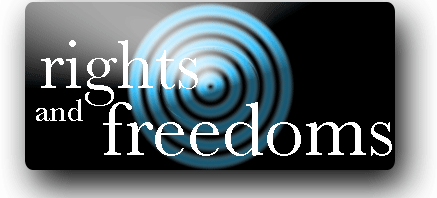|
The
Indian Act: 1876, 1880
Indian Acts were passed by the Parliament of Canada in 1876, 1880 and
later, to regulate most aspects of life for Aboriginal Peoples in Canada.
The Indian Acts comprise a 40-page document. Some key features of the
Acts are summarized here.
Here are some of the
rules which affect Aboriginal Peoples:
Status:
- The Government of Canada decides who is an Indian and who is not,
having Indian status gives certain rights to people defined by the law
as "Indian ".
- Aboriginal women who marry non-Aboriginal men lose their Indian status;
this law does not apply to
Aboriginal men who marry non-Aboriginal women.
- An Aboriginal person who votes in federal or provincial elections
must give up Indian status to do so.
- Métis people are not defined as Indians.
Cultural
Practice:
- Aboriginal dances, festivals and ceremonial displays and "regalia"
that go with them are forbidden, People may he jailed for taking part
in Aboriginal ceremonies such as the sun dance or potlaches.
Indian
Agent's Powers:
- An Indian Agent is responsible for life on each reserve. This agent
controls activities, money and movement on the reserve, and enforces
the Indian Act.
- An Indian Agent is a non-Aboriginal person.
- An Aboriginal person must have the permission of the Indian Agent
to leave the reserve for any reason.
- An Aboriginal person must have the permission of the Indian Agent
to sell any farm crops harvested on the reserve or any farm animals
raised there.
- An Aboriginal person may not gamble or go to pool halls or saloons.
- An Aboriginal person may not possess or drink alcohol on or off the
reserve.
- Band funds are managed by the Indian Agent for each hand.
Elections:
- Band members will vote to elect chiefs and councilors on each reserve.
The chiefs and band councils will pass laws for the reserve.
- An Aboriginal person who votes in federal or provincial elections
must give up Indian status.
Education
- Aboriginal children will he sent to residential (live-in) schools
when they become six years old. At these schools, the Aboriginal children
will be forbidden to speak their Aboriginal languages and will be trained
in the ways of White people.
Many parts of these Indian Acts have been changed in the 1960s,
1970s, 1980s and 1990s. The parts listed here were in effect from 1876
until the 1960s.
|

